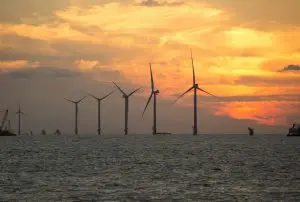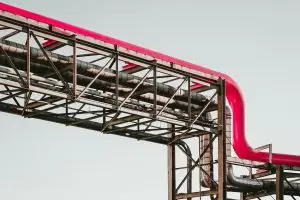The next general election must be held no later than 28 January 2025, but it is widely expected to be held in 2024. With Labour 18 points ahead in the polls,[1] the Party is now using the time before the election to prepare for a possible victory, and the practicalities of governing. This process will involve making tough decisions, especially on spending.
Earlier this month, the Prime Minister authorised official talks between Labour and the civil service.[2] These talks are designed to allow for a smooth transition of power in the event that Labour wins the election and forms the next government. These talks are expected to start before the end of January, and will involve Labour outlining its plans for Government, including how it will organise government machinery.
Meanwhile, Labour has started to develop the policies it will seek to implement if it wins the election and forms the next government. Darren Jones MP, the Shadow Chief Secretary to the Treasury, has been tasked with chairing an infrastructure review, which was launched on 15 January.[3] Working with CEOs of senior leaders of major companies such as the National Grid, Mace and Jacobs, this review will seek to find ways to reduce costs and accelerate delivery of major infrastructure projects.[4] Jones confirmed that a Labour Government would rewrite the UK’s National Policy Statements including to allow for new onshore wind farms to be built in England.[5]
Similarly, on 22 January, it was revealed that Sir Keir Starmer has set a deadline of 8 February to finalise Labour’s draft manifesto.[6] While the Prime Minister has sought to downplay the possibility of a Spring election, Starmer aims for Labour to be ready in case it does go ahead in May or earlier. Shadow Cabinet ministers have been asked to submit policy submissions to Rav Athwal, Starmer’s manifesto director. These submissions will be road-tested with three different members of the shadow cabinet.
Starmer has placed great importance on fiscal responsibility, with Labour seeking to use recent economic instability as an attack line against the Conservative Government.[7] Therefore, Starmer and his Shadow Chancellor Rachel Reeves insist the manifesto be fully-costed. However, this will lead to tough decisions for the Labour leader and other senior figures. Until recently, official Labour policy has remained neutral on many issues, such as the possibility of building HS2 Phase 2a and b.[8] Part of the reason for this was Labour’s emphasis on fiscal responsibility, with shadow ministers unwilling to make promises that they were unsure the could afford to keep once in Government. As Labour nails down its draft manifesto, voters will expect answers on these issues and tough decisions will need to be made.
Although Starmer’s 8 February deadline to finalise Labour’s manifesto is only two weeks away, there are plenty of opportunities for businesses to provide input to Labour’s policy programme. Further changes to the manifesto may need to be made before the election to respond to Government policy, and fine-tuning of detail will continue until the election campaign starts. Organisations should shape their policy suggestions to ensure they are practicable and politically appealing, which a public affairs agency can assist with.
BREVIA CONSULTING PROVIDES STRAIGHTFORWARD POLITICAL ADVICE AND SUPPORT TO BUSINESSES AND ORGANISATIONS
Discover how Brevia can help you and your organisation by contacting the Brevia Team on 020 7091 1650 or contact@brevia.co.uk
[1] Politico, Poll of Polls, 22 January 2024, link
[2] BBC News, Sunak authorises Labour and civil service talks ahead of election, 11 January 2024, link
[3] Darren Jones MP, Twitter Post, 15 January 2024, link
[4] MSN, Major companies to chair infrastructure review, Labour reveals, January 2024, link
[5] Ibid
[6] Financial Times, Starmer sets February 8 deadline to finalise draft Labour manifesto, 22 January 2024, link
[7] Ibid
[8] Reuters, UK Labour leader Starmer: I can’t commit to reversing HS2 decision, 6 October 2023, link




